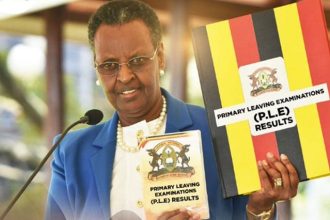Highlights:
- Academic Fraud Scandal Rocks Ugandan Universities: Students Accused of Bribing for Grades
- Allegations of Academic Corruption Emerge at Ugandan Universities
- Bribery Claims Taint Higher Education in the country
- Students Accused of Offering Bribes for Passing Grades in Ugandan Universities
Several instances of academic misconduct have come to light at Makerere and Kyambogo, two prominent public universities in Uganda. According to sources, a fixer, who also acted as a money courier, facilitated these illicit activities. It was discovered that students were allegedly offering bribes to ensure favorable grades, with the charges varying between UGX 100,000 and UGX 250,000 per course unit. These fees were reportedly determined arbitrarily by marking assistants.
Both institutions, when approached for comment, stated that they maintain a strict zero tolerance policy against academic fraud. Individuals suspected of participating in such misconduct were reportedly relieved of their positions, as per information gathered by a local news paper.
The incident at Kyambogo University involved a class of 40 students studying automotive engine power systems at the diploma level within the automobile and mechanical engineering programs. Facing unexpectedly challenging exam questions, some students decided to pursue alternative means to pass. Allegedly, a classmate informed them that their lecturer required money, and without financial contributions, they risked failing the exam. In response, students collected approximately UGX 1.5 million, which was then handed over to a fixer for delivery to the subject examiner.
Enock, one of the affected students, disclosed that at least UGX 50,000 was paid by each of the 16 students studying for a diploma in automobile engineering, and UGX 900,000 was raised by the 24 students pursuing mechanical engineering. The funds were then passed on to a colleague who had close ties with the lecturer. Further investigations led to the identification of the student who acted as a courier for the bribe.
The courier, unaware that he was speaking to reporters, admitted to his role in the situation and advised against approaching the lecturer as a group, citing potential complications. He also warned about the lecturer’s desperation for money and advised verifying whether the results had already been submitted before making any attempts to negotiate.
Subsequently, the students found that their exam results were not as expected, leading to discontent expressed in a WhatsApp group they had created. Some students voiced their frustration at the prospect of retaking the exams, while others discussed taking action against the lecturer.
While there is no comment from the lecturer regarding the students’ claims, messages from his number continued to circulate job advertisements in the WhatsApp group, causing further annoyance among the students.
The lecturer, whose identity is withheld, denied the accusations when contacted in early October. He claimed that the students’ strike for their marks was due to the university’s pressure to submit grades without compensation. He challenged the students to provide evidence of their allegations, stating that words alone were insufficient for judgment.
At Kyambogo University, Vice Chancellor Prof Eli Katunguka acknowledged dismissing individuals for changing grades in the university portal. The university’s public relations officer, Ms. Jennifer Sibbo, confirmed the lecturer accused by students was a part-time lecturer who left Kyambogo a year ago. She attributed the delay in paying part-time lecturers to a financial constraint and noted that the issue was being addressed.
Similar allegations emerged at Makerere University, where students claimed that some lecturers sold grades to students. One source, who held a position of responsibility at the College of Business and Management Sciences (COBAMS), alleged that bribery for grades was common. Charges ranged from UGX 100,000 to UGX 250,000 per course unit, with marking assistants setting the prices arbitrarily.
A student shared how they established a connection with a marking assistant at a bar, leading to consistent high grades in challenging subjects. It was revealed that these practices were more common in challenging courses.
Marking assistants often used students as intermediaries to collect bribes. It was also indicated that the practice might be due to low pay for marking assistants.
Dr. Simon Waidembe, a lecturer, confirmed the issue of changing grades and mentioned the difficulty of catching the culprits. It was observed that it was illegal for lecturers to mark exams off-campus, but some were reported to engage in this practice.





















This write up is unprofessional and defamatory. It should have been alleged titled, examination scandal. You seemingly have no evidence.
This is not in support of academic fraud but a guinine expression.
Good story but you have literally paraphrased all your sources. It would be wonderful if you quoted some of them verbatim because it makes the story more believable. Thank you.